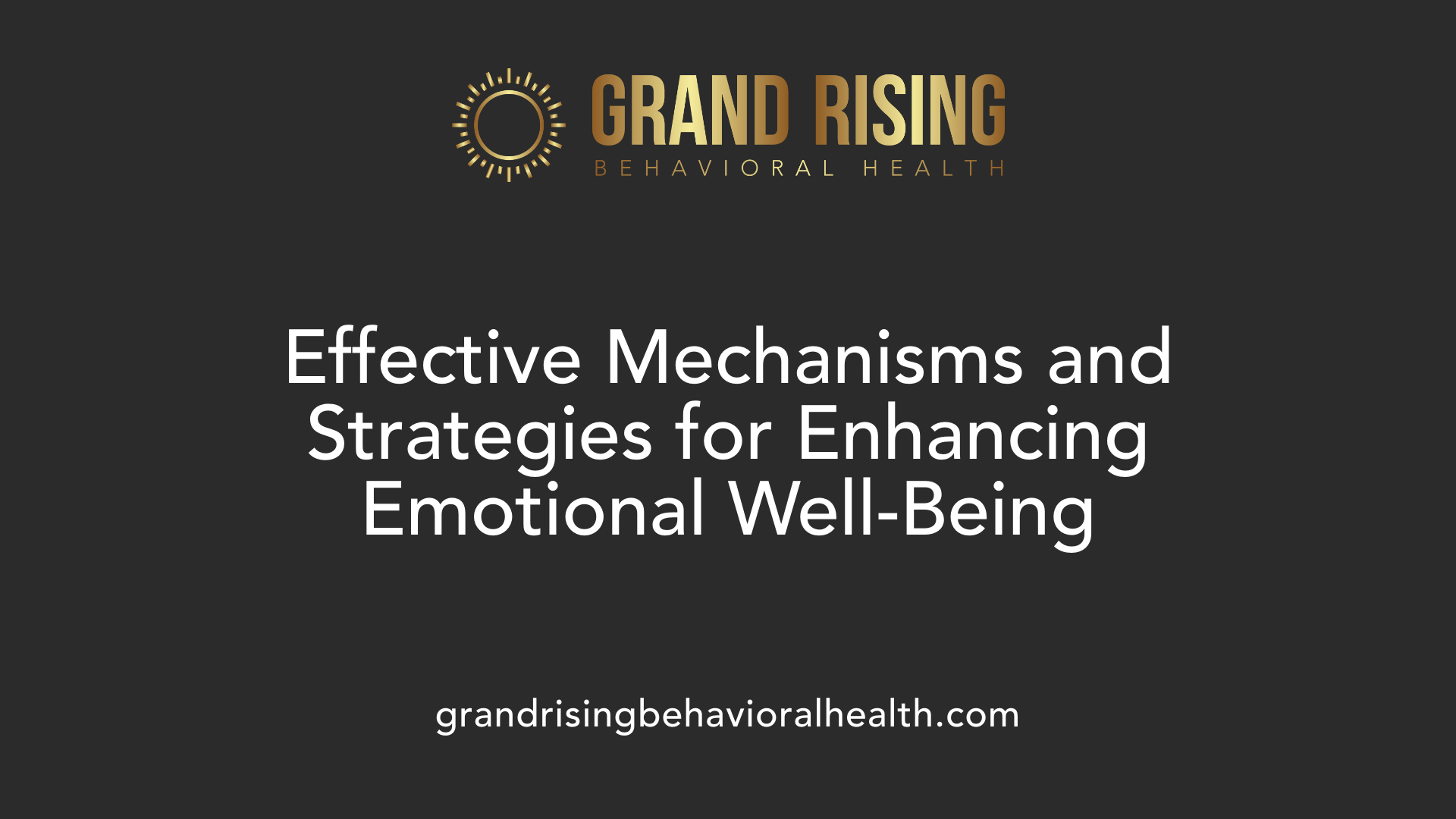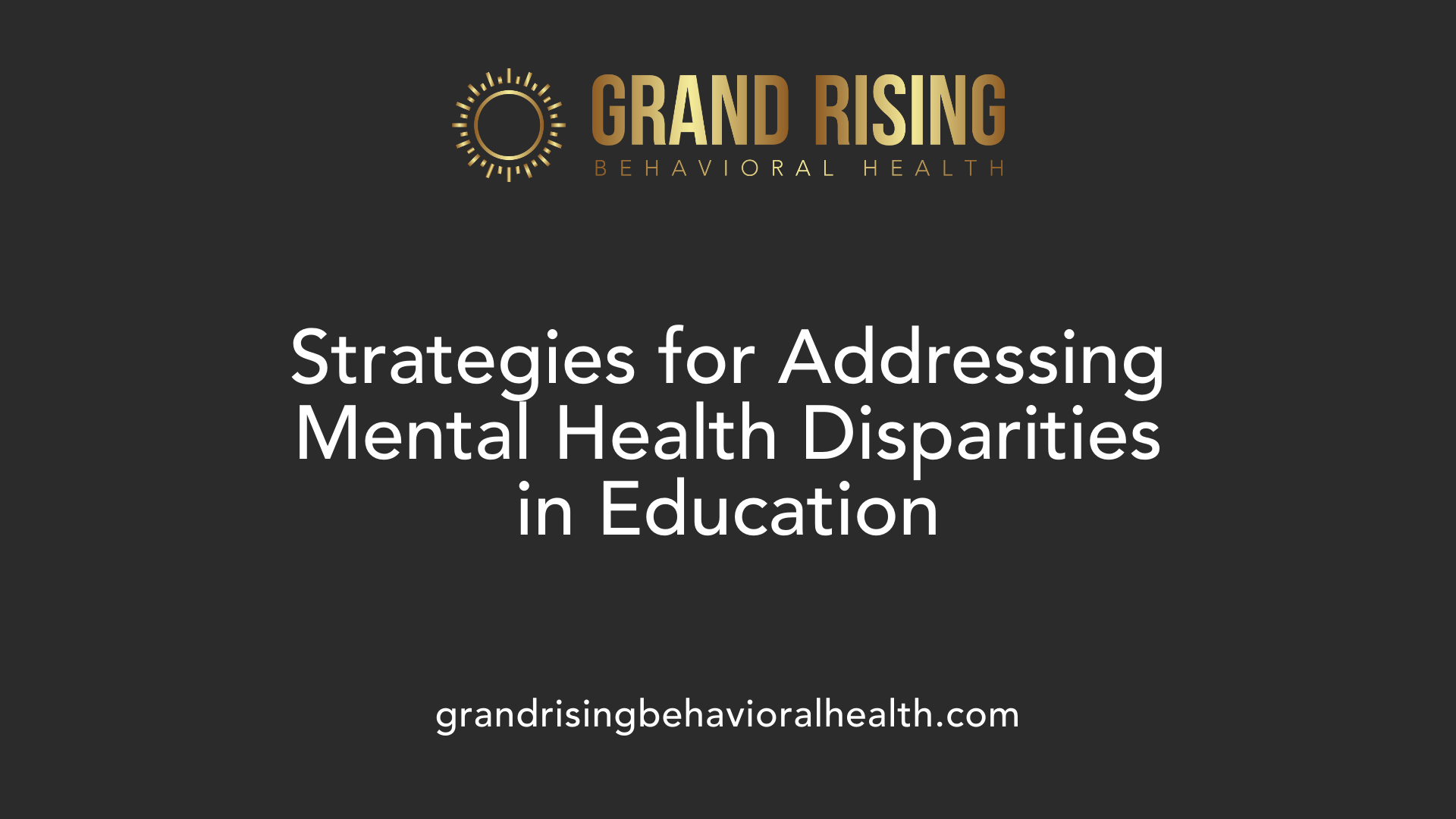How Behavioral Health Programs Support Emotional Growth
Exploring the Role of Behavioral Health Programs in Children's Emotional Development

Introduction
With the growing awareness of mental health challenges among children and youth, behavioral health programs have become vital in supporting emotional growth. These initiatives aim to equip young individuals with the necessary skills to navigate emotional landscapes and build resilience. As mental health needs and disparities rise, understanding how behavioral health programs contribute to emotional development is more important than ever.
Behavioral Health Programs and Emotional Development

How do behavioral health programs contribute to the emotional development of children and youth?
Behavioral health programs significantly contribute to the emotional development of children and youth by fostering essential skills such as emotional regulation, self-awareness, and empathy. These programs help children learn to manage and express their emotions appropriately, which is crucial for emotional well-being, akin to the waves that arise from the ocean of mental health.
By emphasizing emotional intelligence, these programs enable youth to navigate their feelings and build healthy relationships, enhancing their overall resilience. This development is vital, as research shows that strong social-emotional skills lead to improved academic performance and better behavioral outcomes.
Additionally, behavioral health programs address the interconnection between mental and emotional health. They recognize that effective emotional expression can improve decision-making and stress management. For example, children involved in these programs often report feeling more equipped to handle challenges and emotional fluctuations.
Ultimately, these programs facilitate a sense of wellness, allowing children and youth to function more effectively in society. They not only tackle immediate emotional needs but also lay the groundwork for lifelong emotional health and the ability to foster meaningful connections.
Mechanisms and Strategies in Behavioral Health Programs

What mechanisms and strategies are utilized in behavioral health programs to foster emotional well-being?
Behavioral health programs deploy multiple mechanisms and strategies to enhance emotional well-being. Some of the fundamental approaches include:
Cognitive-Behavioral Therapy (CBT): CBT focuses on changing negative thought patterns and behaviors that contribute to mental health issues. It equips individuals with practical skills to cope with stressors effectively.
Mindfulness Practices: Techniques such as yoga and meditation are incorporated to foster mindfulness, which helps reduce anxiety and improve emotional regulation by promoting present-moment awareness and acceptance.
Social-Emotional Learning (SEL): SEL programs are designed to teach children and adolescents essential emotional and social skills. These skills enhance relationships, self-awareness, and decision-making, ultimately supporting better mental health outcomes.
Healthy Lifestyle Behaviors: Encouraging regular physical activity, balanced nutrition, and restorative sleep significantly supports mental health. Exercise can mitigate symptoms of anxiety and depression, while a nutritious diet directly impacts mood and cognitive functions.
Promoting these strategies can significantly foster resilience and emotional growth. Behaviors that enhance strong social connections are also vital, as they provide comprehensive support systems for young individuals. Additionally, recognizing early warning signs of mental health challenges and promoting open dialogues with caregivers enhance opportunities for early intervention, crucial for long-term emotional welfare.
Evidence-Based Practices and Social-Emotional Learning (SEL)

What are evidence-based practices and recommendations for implementing behavioral health initiatives?
Evidence-based practices for implementing behavioral health initiatives are centered around utilizing peer-reviewed research as a foundation for interventions. This approach ensures that programs align with proven outcomes and best practices, leading to greater effectiveness. Involving family and community resources is crucial, as it creates a supportive environment that maximizes participation and engagement.
Consistent evaluations of these programs are necessary to assess their impact and to make data-driven adjustments. Improved emotional support has become especially relevant during crises, like the COVID-19 pandemic, where the influence of digital connections highlights the necessity of adaptable services. By addressing the nuances of emotional support within varying contexts, initiatives can better cater to the specific needs of the population.
How does social-emotional learning (SEL) enhance mental health and emotional safety?
Social-emotional learning (SEL) significantly enhances mental health and emotional safety by teaching individuals vital skills such as emotional regulation, self-awareness, and empathy. A systemic approach to SEL fosters supportive relationships and nurtures emotionally safe environments, acting as protective factors against many mental health challenges.
Through structured, intentional learning experiences, SEL promotes equitable practices that improve interpersonal relationships and positively impact self-perception. Research indicates that students engaged in SEL programs experience better academic performance and report lower levels of anxiety. Additionally, participation in SEL initiatives cultivates feelings of safety and inclusion within school environments, ultimately leading to enhanced overall well-being, resilience, and healthier life choices.
| Topic | Key Points | Impact |
|---|---|---|
| Evidence-Based Practices | Utilize peer-reviewed research; involve community resources; consistent evaluations | Improved effectiveness and adaptability |
| Social-Emotional Learning (SEL) | Teaches emotional regulation and empathy; creates supportive environments | Lower anxiety; improved academic performance |
Impact on Academic Success and Well-being

What impact do behavioral health programs have on academic success and the overall well-being of children?
Behavioral health programs have a significant positive impact on children's academic success and overall well-being. Participation in these programs enhances concentration, classroom behavior, and academic achievement while also fostering emotional resilience and better stress management.
Longitudinal studies suggest that early mental health problems can lead to long-term negative outcomes in adulthood. By addressing these issues early, behavioral health programs help mitigate risks and improve healthy development. For instance, students engaged in social-emotional learning (SEL) programs have demonstrated achievement gains of 11 to 17 percentile points.
Moreover, protective factors such as family cohesion and social support are fundamental. They can help children overcome the challenges presented by mental health issues, reinforcing the idea that effective interventions lead to improved academic and personal outcomes. This symbiotic relationship suggests enhanced emotional skills can translate into higher educational attainment.
In essence, these programs support not only immediate educational achievements but also contribute positively to long-term mental health and life satisfaction, highlighting the critical role of behavioral health in fostering success for all children.
Addressing Disparities and Integrating Supports in Education

How can access disparities and challenges in accessing mental health services be addressed?
Addressing disparities in accessing mental health services requires a multifaceted approach. Expanding telehealth options is essential, especially in rural areas where geographical barriers limit access. Additionally, increasing the number of mental health providers through targeted training programs can enhance service availability.
Integrating mental health services into primary care settings lowers stigma and improves access, particularly for underserved populations. Raising awareness about available resources, such as the 9-8-8 hotline, can also foster community trust and increase utilization of services. Promoting cultural competency among providers ensures that diverse communities feel understood and supported. Furthermore, enhancing financial assistance, including Medicaid expansion and funding community health centers, plays a significant role in making mental health services accessible to low-income individuals facing mental health challenges.
How are mental health supports integrated within educational settings?
Integrating mental health supports within educational settings is crucial for fostering student well-being and academic success. Collaboration between educators and mental health professionals helps develop curricula incorporating social-emotional learning (SEL) and ensures access to on-campus counseling services.
Schools can implement frameworks like Response to Intervention (RtI) and Multitiered Systems of Support (MTSS) to effectively address diverse student needs. These systems allow for a tiered approach—providing universal support for all students while offering targeted interventions for those who need more intensive help. Enhancing parental involvement is also vital; addressing barriers such as transportation and social stigma facilitates the delivery of mental health services. Ultimately, integrating these resources nurtures a supportive environment conducive to learning and helps in early identification and intervention of mental health issues.
Conclusion
Behavioral health programs are critical in nurturing the emotional growth of children and youth. By employing evidence-based strategies and integrating social-emotional learning, these programs offer essential support that enhances emotional well-being, academic success, and overall life satisfaction. To effectively support all young individuals, it is crucial to address access disparities and ensure mental health services are fully integrated within educational systems. By fostering supportive environments and relationships, behavioral health initiatives can lay a strong foundation for the future stability and resilience of the younger generations.
References
- [PDF] Supporting Child and Student Social, Emotional, Behavioral, and ...
- Introduction - Fostering Healthy Mental, Emotional, and Behavioral ...
- Behavioral Health Resources for Children and Families
- Policy Strategies - Fostering Healthy Mental, Emotional, and ... - NCBI
- SEL and Mental Health - CASEL
- Social Emotional and Behavioral Support - Department of Education
- Social-Emotional and Behavioral Health and Development are the ...
More Resources
A team ready to start your journey.
Get in touch — today.
We are a safe space – a haven for exceptional individuals to receive discreet, personalized, in-person treatment and care.
.png)









